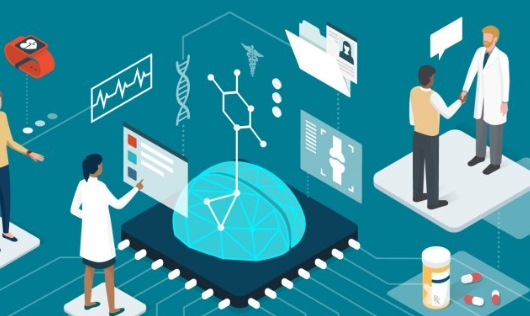Revolutionizing Healthcare: How AI is Transforming Patient Care
Artificial Intelligence (AI) has emerged as a game-changer in the healthcare industry, revolutionizing the way patient care is delivered. From diagnosing diseases to personalizing treatment plans, AI is transforming every aspect of healthcare. Here’s how AI is reshaping patient care:
1. Early Disease Detection:
AI algorithms can analyze vast amounts of patient data to detect early signs of diseases such as cancer, diabetes, and heart disease. This early detection can lead to timely intervention and improved treatment outcomes.
2. Personalized Treatment Plans:
By analyzing a patient’s genetic profile, medical history, and lifestyle factors, AI can create personalized treatment plans tailored to the individual’s unique needs. This personalized approach can lead to better treatment outcomes and reduced healthcare costs.
3. Remote Monitoring:
AI-powered wearable devices and mobile apps enable remote monitoring of patients’ health metrics such as heart rate, blood pressure, and blood sugar levels. This real-time data can help healthcare providers track patients’ progress and intervene proactively when necessary.
4. Predictive Analytics:
AI can analyze healthcare data to predict disease outbreaks, patient admissions, and medication adherence. This predictive analytics can help healthcare providers allocate resources effectively and improve patient outcomes.
5. Virtual Health Assistants:
AI-powered chatbots and virtual health assistants can provide patients with personalized health advice, medication reminders, and appointment scheduling. These virtual assistants can enhance patient engagement and empower individuals to take control of their health.
6. Medical Imaging Analysis:
AI algorithms can analyze medical images such as X-rays, MRIs, and CT scans to detect anomalies and assist radiologists in diagnosing diseases. This can lead to faster and more accurate diagnoses, ultimately improving patient care.
In conclusion, AI is revolutionizing patient care by enabling early disease detection, personalizing treatment plans, remote monitoring, predictive analytics, virtual health assistants, and medical imaging analysis. As AI continues to advance, the healthcare industry will undoubtedly see further improvements in patient outcomes, cost-effectiveness, and overall quality of care.

